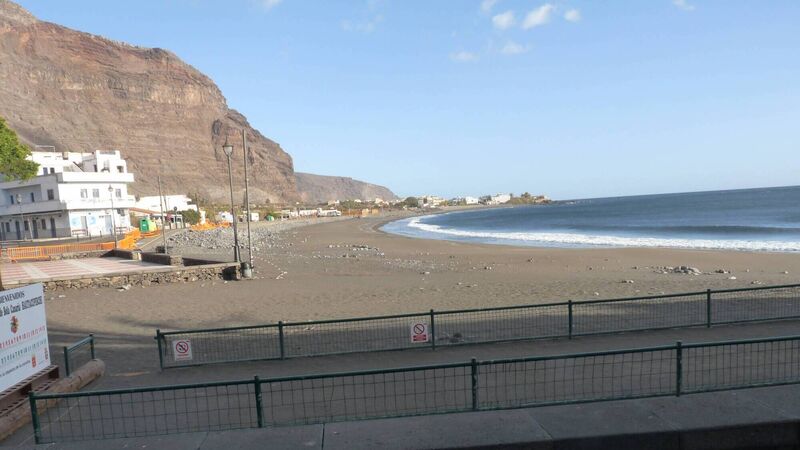Damien Enright: La Gomera's disappearing beach and those mouthwatering mackerel

The main beach at Valle Gran Rey, La Gomera, seen here last March. A storm last week washed away the sand on one of the most popular beaches on the island.
Some 60% of the black sand beach in the Valle Gran Rey in La Gomera, Canary Islands, was washed away by the huge surf that pounded it last week, waves the height of a one-storey house. It'll be disappointing for the holidaymakers. It's the main beach in the valley and the best beach on the island. When the sand is taken away by the sea, all the rounded stones that lie beneath are exposed, from football-size ones highest up to fist-sized one that reaches out to the lowest tides. So, it's not easy to go swimming there now. But the 40% that's left is negotiable.
Dislodged by rain, rocks fell, with one relatively large rockfall. The winds were fierce, the big palmera trees swaying like bamboo canes, and their head of leaves and dates as wild as the snakelock hair of Medusa, clashing and slashing like swords in the turmoil of battle. For four days following, rain fell sporadically, although sometimes one could see no clouds. It may have come from very high up, where the stars are, so a small boy said. But for the relative warmth, we might have been back in West Cork.










